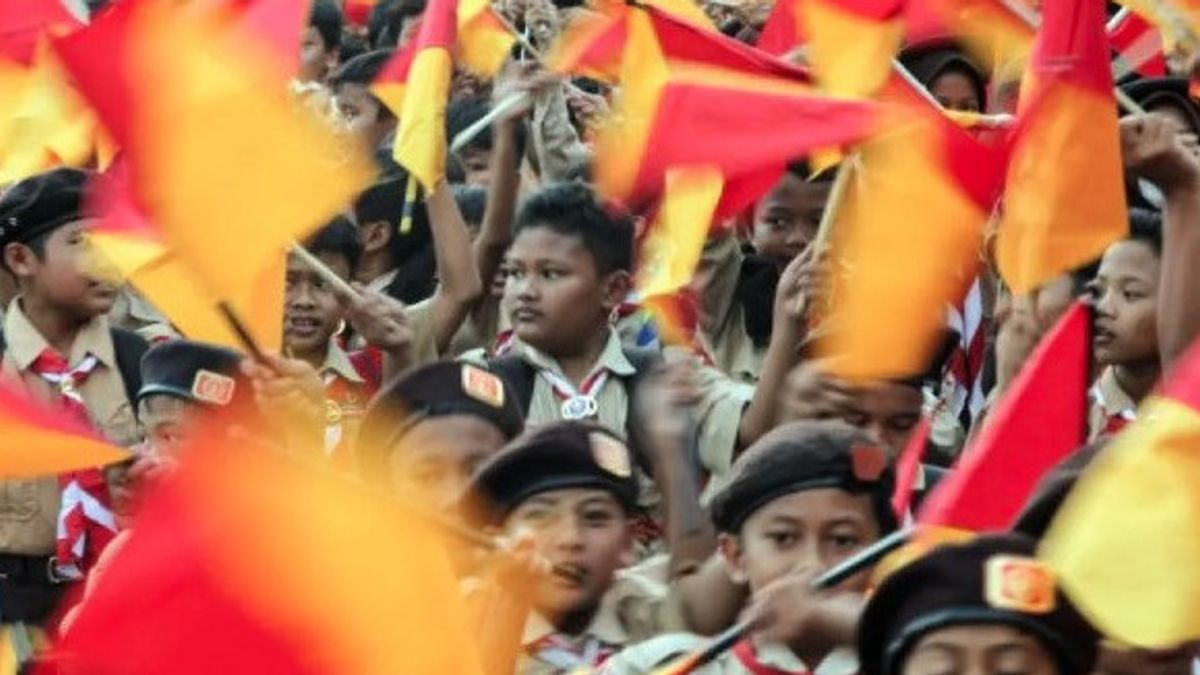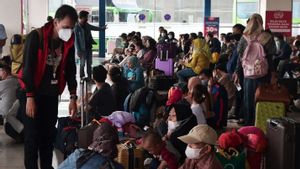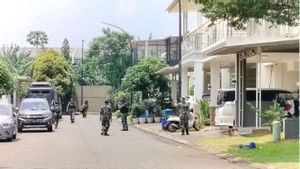JAKARTA The decision of the Ministry of Education, Culture, Research, and Technology (Kemendikbudristek) to remove Scouts as mandatory extracurricular in schools reaps pros and cons.
Kemenbudristek has just revoked Permendikbud Number 63 of 2014 which makes Scouts obligatory extracurricular. With the issuance of Permendikbusristek Number 12 of 2024 concerning Curriculum in Early Childhood Education, Basic Education Levels, and Secondary Education Levels, the previous regulations were removed.
Thus, the Scout status that was previously obliged to be followed by students is now an extracurricular choice. This means that Scouts will only be followed by students voluntarily, not an obligation.
"Law Number 12 of 2010 (regarding the Scout Movement) states that scout movements are independent, voluntary, and non-political. In line with this, Permendikbudristek 12/2024 regulates that student participation in extracurricular activities, including Scouts, is voluntary," said Head of the Standard Agency, Curriculum, and Education Assessment (BSKAP) Anindito Aditomo.
Extracurricular activities are activities that must be organized by educational units as a forum for character development activities in the context of expanding potential, talent, interests, abilities, personality, cooperation, and optimal student facilities. Extracurricular activities are generally carried out outside the study hours of the standard curriculum.
Scouts are the extracurricular ones that have existed for a long time, apart from Paskriba. Scout activities are considered very important to shape the character of the nation's youth. Scouts provide education that forms character, such as discipline, politeness, adheres to rules, creativity, and thinking skills.
The positive values obtained from Scouts were agreed by Vice President Ma Ruf Amin. But on the one hand, he assessed that the steps taken by the Minister of Education and Culture Nadiem Makarim not to make Scouts as mandatory extracurricular at school were appropriate. That way, he hopes that students who join the Scouts will really have the intention.
"I think it's good. Because it won't be like yesterday, for example, like it or not, then he was forced by all. With that choice, Pramuka entered, he really had the intention of wanting it. That would be even better," said Ma'ruf on the sidelines of a working visit in Tangerang Regency, Banten Province, Tuesday (2/4), quoted from an official statement.
Nadiem's decision also received support from the Scout Trustees in Banyuwangi, Mohamad Arif Fajartono, SST, M.Med.Kom. According to Arif, this policy returns Scouts to their fitrah as a voluntary choice of extracurricular activity.
As an experienced person in Pramuka, Arif admitted that the extracurricular participants increased dramatically when they were still compulsory. But according to him, true happiness and character formation cannot be measured by this amount.
Arif also prefers to nurture three volunteers with the character formed, rather than 300 forced people.
"Constructing a handful of individuals with dedication and love is better than fostering many people without ties," said Arif, quoted by Pramuka.id.
"Building a handful of individuals with full dedication and love will produce much better results than fostering many people without strong ties," he added.
However, the elimination of Scouts as extracurricular must raise concerns from various circles. This is because Scouts are considered as one of the activities that has a vital role in the formation of student characters.
In addition, Scouts have also been an inseparable part of school culture. Scouts have typical activities such as rows, tents, or games that train physical toughness.
When Scouts are no longer mandatory extracurricular, people are wondering about the development of students' character.
According to the Executive Director of the Education Policy Study Center (Puskapdik) Satibi Satori, Scouts are not just ordinary extracurricular activities, but positive culture that has formed student character in terms of leadership and independence.
"We deeply regret the Minister of Education and Culture No. 12 of 2024. Scouts have formed students in terms of student leadership and independence," he said.
He emphasized that the elimination of Scouts as an extracurricular obligation can reduce students' opportunities to develop leadership and independence skills that are very important.
In the midst of the polemic about Scouts, the Head of the Advocacy Division of the Education Association and Teachers, Iman Zanatul Haeri, emphasized that what is more pressing now and in the future is how schools are able to build the transformation of Scout activities. Develop a fun, encouraging, innovative, challenging, and quality learning ecosystem for students. Scouts are no longer with conventional, formalistic, and militaristic approaches.
Scout activity so far is considered too conventional, not in accordance with the times, it is not uncommon to swallow victims. As happened when 10 students of SMPN 1 Turi Sleman, Yogyakarta died while participating in Scout activities several years ago. They died while crossing the Semport River in Donokerto Village.
Starting from this case, two housewives from Lampung, Rohilyana and Solyana admitted that they were concerned and they even sued the Scout Movement Law to the Constitutional Court. Because of this case, Solyana is worried that her child will be treated harshly while participating in the Scouts.
"The petitioner is becoming extraordinarily nervous about the harsh treatment in these activities, which psychologically is still unstable," said Solyana.
Reflecting on a number of cases of alleged violence in Scout activities, Iman emphasized the need for revitalization so that Scouts no longer hold conventional activities.
"How to prevent violence, bullying, seniority, power relations in all school exkul activities such as Scouts, Pasbariba, or Nature Lovers, this is our common challenge," said Iman to VOI.
SEE ALSO:
If schools or madrasas are able to create Scout activities that are happy, humanist, and challenging far from violence and seniority, of course students will be interested in participating.
"P2G believes that if the Scouts have transformed into fun, interesting, egalitarian, antibullying exports, then the students will definitely want to enter the Scouts in droves. Even without being required by the state," he continued.
The English, Chinese, Japanese, Arabic, and French versions are automatically generated by the AI. So there may still be inaccuracies in translating, please always see Indonesian as our main language. (system supported by DigitalSiber.id)

















